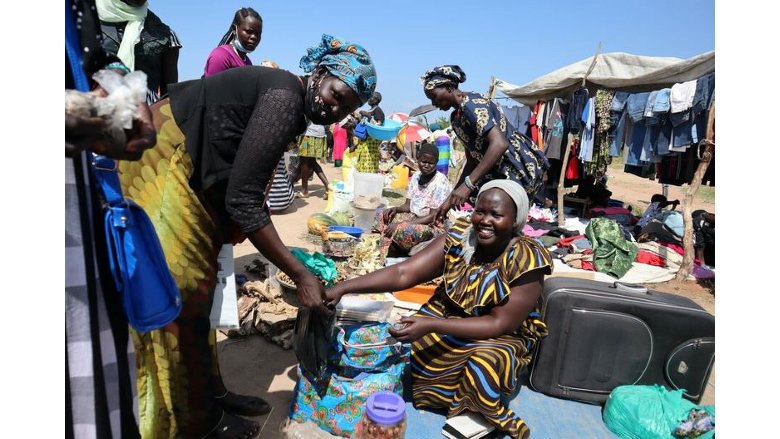As part of the project the World BankˇŻs State and Peacebuilding Fund (SPF) is financing a pilot initiative in 4 refugee districts in Uganda to help women and children get access to safe and ethical care through existing service providers in the districts and settlements.
Part of the project efforts focus on bolstering the government staff through training and mentorship and strengthening coordination and referral mechanisms. ˇ°The training of service providers will strengthen their capacity to be able to help survivors access quality essential services, such as health services, psychosocial support, legal aid, and shelterˇ±, says Margarita Puerto Gomez, World Bank East Africa Senior Social Development Specialist.
Promoting attitudes and behaviors that foster social and cultural change toward gender equality is also part of the project activities because negative attitudes towards GBV victims often result in trauma and mental health issues among survivors. So far, 710 local champions ˇŞ419 Males and 291 femalesˇŞ have been trained at the community level to understand GBV and VAC risks and reduce tolerance to incidents of violence that may be occurring during project implementation. This includes translation of risk mitigation materials into four local languages and developing a GIS mapping of services for women and children survivors of GBV and VAC in all districts hosting refugees to improve referral pathways and coordination of response services.
The numbers tell the story: in Haiti, physical violence currently affects 29% of women of childbearing age and is perpetrated by an intimate partner in 45% of the cases; violence linked to psychological pressure with the goal to exert control affects over 31% of women; women survivors of domestic violence account for 34%, with 37% of cases resulting in serious injuries.
ˇ°In Haiti, GBV represents a significant barrier to womenˇŻs full engagement in social and economic life and remains inextricably linked to violence and insecurityˇ±, says Bruce Macphail, World Bank Senior Social Development Specialist, and lead on the Promoting GBV Services for Women and Girls project. ˇ°Access to prevention programs and survivor-centered responses services remain extremely limited throughout the country, are structurally under-funded, and remain affected by cultural social norms.ˇ±&˛Ô˛ú˛ő±č;
through the strengthening of the community-based (WGSS). Safe spaces provide a safe entry point where women and girls at risk, or that have already experience GBV, can be free from harm and harassment, and access opportunities to exercise their rights, and promote their own safety.
This intervention is particularly important in emergency contexts, where women and girls are deliberately targeted. Girls and women are provided with assets and skills for making healthy decisions in their life and being able to negotiate their needs as well as comprehensive services and/or referrals for GBV survivors. ˇ°ÄľąĎÓ°Ôş is acutely aware of the global problem of GBV. This is why the SPF is increasing its focus on grants on gender in situations of forced displacement, conflict zones, personal violence, and crisesˇ±, says Valery Ciancio, World Bank SPF Program Manager.
, for example in and . The SPF and its partners are contributing to that effort by ensuring that gender and FCV programs focus on activities that reduce disparities between women and men and boys and girls; ensure inclusion in the design and implementation of World Bank operations or dialogue; pilot innovative approaches to enhancing womenˇŻs voice and agency; and produce new analysis or knowledge on gender in FCV.
From 2009-2021, SPF funded approximately $26 million (44 out of 286 grants) in grants primarily focused on gender. Most of these grants focused on GBV prevention or response: 40 grants totaling $20 million in commitments. The majority of the gender-focused grants were in the . The SPF has supported interventions primarily focused on addressing gender in FCV across all World Bank geographic regions. These grants have their main objective related to gender inclusion, equality, or empowerment, including grants addressing GBV.


